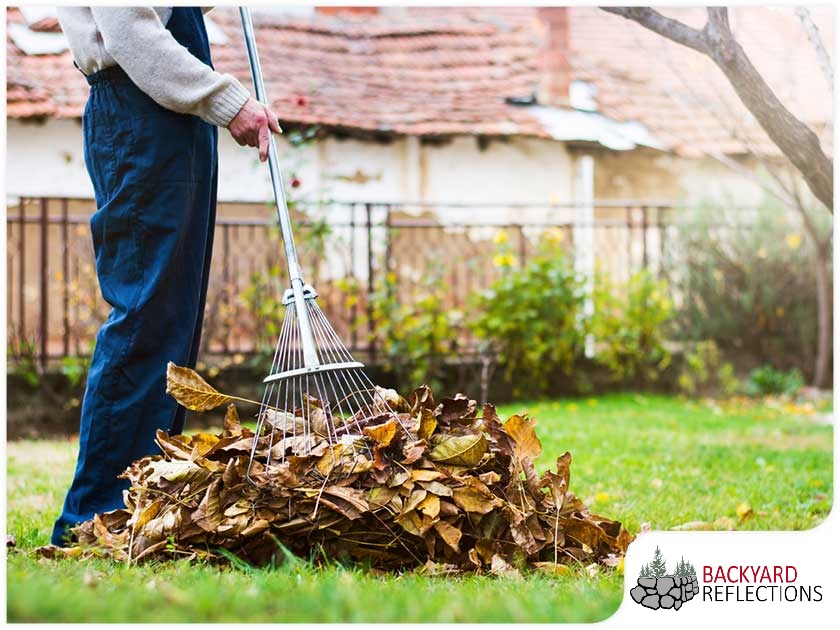Planning to do a bit of spring cleaning? You might want to start with your backyard. Your lawn will definitely need a lot of trimming and upkeep after winter. Before you start, it’d be a good idea to create a spring cleaning checklist to help you do tasks more efficiently. Here’s a tip: divide your spring-cleaning list to six categories: removing refuse from your lawn, preparing the flower beds, planting seedlings, pest and weed control, pruning shrubs and bushes and laying down mulch.
To help you get started, our outdoor living experts at Backyard Reflections, Inc shares some landscaping and spring cleaning tips in this post.

Removing Refuse from Your Lawn
The first thing you should do is to remove the refuse on your lawn. Strongs winds may have knocked down tree branches fruit or blown debris onto your lawn. Here’s a green tip: Instead of disposing the organic debris in a trash bag, use dead wood and fallen to leaves make a compost pile.
Important note: Wait for the grass to dry before raking the leaves to preserve your lawn and landscape design—raking a wet lawn might tear the grass from their roots, creating bald patches on your lawn.
Dealing with Lawn Damage
What if heavy foot traffic or pets eager to go outside damaged your lawn during winter? Combine soil, grass seed and fertilizer and then sprinkle it all over your lawn. Make sure to keep the ground moist until new grass sprouts out.
Important note: If your landscape suffered considerable frost damage, you might need the help of a landscaper or outdoor living expert to restore it to its pristine state.
Preparing the Flower Beds
If you have a pre-existing flowerbed, simply pull out the weeds and apply compost. You can also use chemical fertilizers, but if you’re going to use them, make sure to follow the instructions closely. Using too much chemical fertilizers. Compost would be a safer choice—it’s a slow-release fertilizer that’s safe and natural.
If you want to create more flower beds, there are several methods you can use. You can do it the old-fashioned way using a tiller to break new ground or you can get rid of grass by covering them and depriving them of sunlight. To learn more about other ways to modify your lawn and landscape, consult a landscaper or outdoor living expert.
Planting Seedlings
Make sure there’s enough space between seedlings, as flowers need enough room to grow. You might also want to try adding a bit of color to your home’s landscape and enhance its curb appeal by planting new flower varieties. Flower varieties that are popular in spring include daffodils ( a staple in any spring garden), hyacinths, primrose, tulips, and star magnolias.
Pest and Weed Control
All of the soil in Minnesota contain weed seeds spread transported by several sources. That’s why occasional weeding is a must. As a rule of thumb, you should make weeding a daily part of your gardening routine and eliminate weeds before they flower. Otherwise, wind may spread their seeds all over your garden.
Spreading Mulch
Laying down mulch is an effective way of preventing weeds from popping up in your garden. Mulch deprives weed seeds of sunlight they need to germinate and prevent weed seeds from landing on the soil. A 2- to 3-inch layer of mulch should be enough to retain moisture in the soil and prevent weeds from sprouting. To learn more about your options for controlling weeds and pests, consult a landscape contractor.
Pruning Shrubs
Don’t forget to prune dead tree branches off your bushes. It would also be a good idea to prune some of the tree limbs that are encroaching on pathways. That way, the tree limbs won’t be broken off for the rest of the season.
Need a landscaper to help you with improving your garden or lawn’s curb appeal?
Backyard Reflections, a company with over two decades of experience, offers a wide range of professional landscape design and outdoor living services. To request a consultation, call us at (218) 454-1065 or fill out this form.


